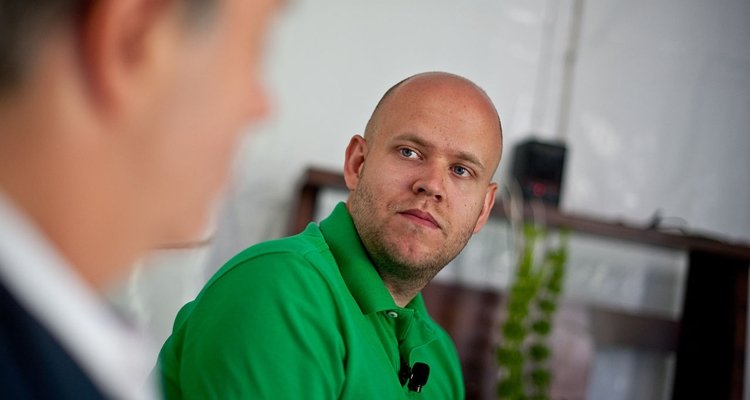
Photo Credit: Fortune Live Media / CC by 2.0
Ahead of a March deadline for companies including Apple and Google to comply with the entirety of the EU’s Digital Markets Act (DMA), Spotify last week revealed plans for a revamped app experience in Europe. Now, to the streaming giant’s apparent dismay, Apple has unveiled its “new business terms for apps in the EU” – including a flat-rate fee for installs.
The Apple Music developer’s answer to the Digital Markets Act – and the operational pivots it’s spurring at companies such as Spotify and Meta – first came to light in a recent Wall Street Journal piece.
On the heels of this preview, Apple formally detailed a number of changes it intends to make in the EU due to the DMA, and it’s these disclosures that elicited a firmly worded response from Spotify.
Of course, the Stockholm-based music company has for years spearheaded a decidedly public campaign against Apple’s alleged App Store monopoly. To bring the uninitiated up to speed, we’ve recapped the showdown, including an overview of Spotify’s qualms, Apple’s position, and key developments that preceded this latest twist.
Beginning with the app-experience pivot Spotify has prepped for those who use its app on iPhones in the EU – but not in the U.S., where the matter, at least for the time, appears settled – the service, in keeping with the DMA’s specifics, plans to roll out direct in-app communications about pricing and promotions.
Users, Spotify drove home for good measure, will be able to select and click through subscription packages in the app itself, without paying the 30 percent “Apple Tax.” Also on the horizon are in-app audiobook purchases, “superfan clubs,” a presence in “alternative app stores,” and much more, the business emphasized.
Predictably, Apple doesn’t intend to sit by idly while these and different changes come to fruition.
Following the Journal’s snapshot, the Cupertino-headquartered entity formally indicated that “iOS apps distributed from the App Store and/or an alternative app marketplace” would “pay €0.50 for each first annual install per year over a 1 million threshold.”
“This is extortion, plain and simple,” Spotify vented about this component of the framework. “If Apple’s already charging a commission of 17% (and 10% for recurring payments) on digital goods purchased, why would they also need to charge an annual flat fee for every user?”
As Spotify sees it, this commission – which the Shazam parent described as “reduced” to “either 10 percent (for the vast majority of developers, and subscriptions following their first year) or 17 percent on transactions for digital goods and services” – is designed to render “a developer’s choice between the status quo and this new program as difficult as possible.”
“This combination of fees [the flat fee and the percentage fee] means that, in most instances, if your app is popular, you would pay the same or even more to Apple than under the prior rules,” Spotify claimed.
Moreover, Spotify and others are grappling with “an untenable situation,” according to the text, with Apple’s proposed alternative terms being, when considered as a whole, “the same or worse as under the old rules.”
Most noteworthy of all, Spotify didn’t hesitate to call on the European Commission to take further regulatory action against Apple – an entreaty that’ll make the situation even more interesting to follow during the next month and change.
“Will the European Commission follow through with its intent to right-size Apple’s abuse of power?” asked Spotify. “Or will the DMA be nice in theory, but in practice, have no substantive meaning for most developers?
“All that is required is enforcing the very law many worked so hard to accomplish. The ball is in your court, European Commissioners, and once and for all you must reject this blatant disregard of the very principles you worked so hard to establish,” proceeded the company, shares in which hit a 52-week high of nearly $219 apiece this morning.

